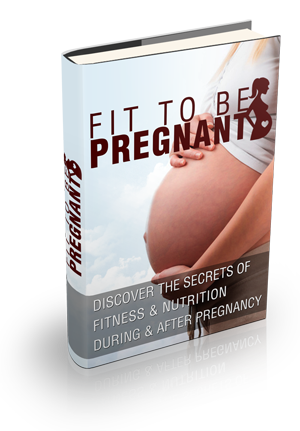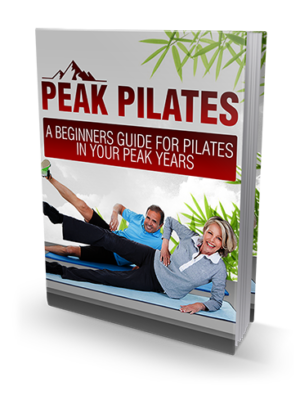Description
Fit To Be Pregnant Your Guide to Nutrition and Exercise During and After Pregnancy
Pregnancy is an incredible, life-changing journey that brings immense joy and anticipation as you prepare to welcome a new life into the world. However, it can also come with its share of physical and emotional challenges. One of the most crucial factors in ensuring a smooth and healthy pregnancy is maintaining proper nutrition and a fitness routine that supports both you and your growing baby. This comprehensive guide, Fit To Be Pregnant, will provide you with essential information on how to nurture your body, stay active, and recover well after childbirth.
Essential Nutrients for a Healthy Pregnancy
Nutrition plays an essential role during pregnancy. The food you eat provides the building blocks your baby needs to grow and develop while also supporting your health. There are key nutrients that are especially important during pregnancy:
- Folic Acid: This vital B vitamin helps prevent neural tube defects and supports the development of the brain and spinal cord. It’s recommended to take at least 400-800 mcg of folic acid daily, even before conception, to ensure the neural tube develops correctly.
- Iron: Your blood volume increases during pregnancy, and iron is necessary to produce hemoglobin, which carries oxygen to both you and your baby. You should aim for about 27 mg of iron per day. Iron-rich foods like lean meats, spinach, and beans, or iron supplements may be necessary, especially in cases of anemia.
- Calcium: Your baby’s bones, teeth, and heart need calcium to develop. If you don’t get enough calcium, your body will take it from your own bones. Aim for at least 1,000 mg daily, and include dairy products, fortified non-dairy alternatives, leafy greens, and fish like salmon in your diet.
- Vitamin D: Vitamin D helps with the absorption of calcium, ensuring your baby’s bones and teeth develop properly. Most pregnant women need 600 IU per day. Spend some time in the sun and eat vitamin D-rich foods such as fortified milk, eggs, and fish.
- Protein: Protein is the building block of your baby’s muscles and tissues. It is important to consume at least 70 grams of protein daily, especially in the second and third trimesters. Sources include lean meats, eggs, beans, lentils, and tofu.
- Omega-3 Fatty Acids: DHA and EPA are critical for brain and eye development. Fatty fish like salmon and walnuts are excellent sources. If you don’t eat fish, consider DHA supplements.
Eating a well-balanced diet that includes a variety of fruits, vegetables, whole grains, lean proteins, and healthy fats will ensure that you meet these nutritional needs. Avoid excessive amounts of caffeine, sugar, or processed foods, as these can have negative effects on both your health and the health of your baby.
Safe and Effective Exercise Routines for Expectant Mothers
Staying active during pregnancy is not only good for your physical health but also beneficial for your mental well-being. Regular exercise can help reduce the risk of gestational diabetes, high blood pressure, and excessive weight gain. Additionally, it can improve your mood, energy levels, and sleep quality.
Here are some safe and effective exercises for pregnant women:
- Walking: One of the easiest and safest ways to stay active during pregnancy is by walking. It keeps your cardiovascular system healthy, is easy on the joints, and helps prevent excessive weight gain. Try to walk for 30 minutes a day, five days a week.
- Swimming: Swimming is a low-impact exercise that relieves pressure on your joints while providing a full-body workout. The buoyancy of water helps support your growing belly, and the water resistance offers a great way to strengthen muscles.
- Prenatal Yoga: Yoga helps increase flexibility, strength, and relaxation. It can also ease pregnancy-related aches and pains, such as back discomfort. Prenatal yoga classes focus on poses that are safe for expectant mothers, and they also teach breathing techniques to help you relax.
- Strength Training: Light strength training can help maintain muscle tone and prevent excessive weight gain. Use light weights or resistance bands to perform exercises that target the arms, legs, and core. Avoid exercises that require lying flat on your back after the first trimester.
- Pelvic Floor Exercises: Strengthening your pelvic floor muscles can help you prevent issues like urinary incontinence and assist with the birthing process. Kegel exercises are a great way to strengthen these muscles, and you can do them anywhere.
Before beginning any new exercise routine during pregnancy, always consult with your healthcare provider to ensure the activities are appropriate for your individual health needs and pregnancy stage.
Post-Pregnancy Fitness and Recovery Strategies
After childbirth, many women are eager to regain their pre-pregnancy bodies. However, it’s important to approach fitness after pregnancy with patience and care. Your body needs time to recover from the physical demands of pregnancy and childbirth.
Here are some tips for post-pregnancy fitness and recovery:
- Start Slowly: Begin with gentle exercises like walking or pelvic floor exercises. Gradually increase the intensity as you feel comfortable. Your body has gone through a significant change, so avoid rushing into high-intensity workouts.
- Strengthen the Core: Your abdominal muscles, particularly the deep core muscles, can be weakened during pregnancy. Focus on exercises that rebuild core strength, such as modified planks, pelvic tilts, and leg raises.
- Breastfeeding Benefits: Breastfeeding can help your body recover post-pregnancy by burning extra calories. It can also assist with the contraction of your uterus back to its pre-pregnancy size. Stay hydrated and eat a balanced diet to support both milk production and your energy needs.
- Rest and Recovery: Adequate sleep and rest are essential for recovery. It’s easy to feel overwhelmed with a newborn, but rest is necessary for your physical and emotional well-being. Take naps when possible and ask for help from family and friends.
Tips for Managing Weight Gain During Pregnancy
Weight gain is a natural part of pregnancy, but it’s important to manage it to prevent complications. Healthy weight gain supports your baby’s growth, but excessive weight gain can increase the risk of gestational diabetes, preeclampsia, and other health issues.
Here are some strategies to manage weight gain:
- Monitor Your Diet: Eat nutrient-dense foods, such as fruits, vegetables, whole grains, and lean proteins. Avoid empty-calorie foods that provide little nutritional value.
- Stay Active: As mentioned earlier, regular physical activity helps you manage weight and supports a healthy pregnancy.
- Small, Frequent Meals: Eating smaller meals throughout the day helps stabilize blood sugar levels and prevents overeating. It also helps alleviate pregnancy symptoms like nausea and indigestion.
- Stay Hydrated: Drinking enough water can help control hunger and prevent overeating. It’s essential to stay hydrated, especially during pregnancy.
Nutritional Advice for Breastfeeding Mothers
Breastfeeding requires additional calories and nutrients to ensure both your health and your baby’s development. Aim to consume about 500 extra calories per day while breastfeeding. Focus on nutrient-dense foods such as:
- Protein-rich foods like lean meats, eggs, and legumes
- Whole grains such as oats, brown rice, and quinoa
- Healthy fats from avocados, nuts, and seeds
- Plenty of fruits and vegetables for vitamins and minerals
Stay hydrated, and make sure you are getting enough calcium and iron as well.
Conclusion
Pregnancy and postpartum recovery are critical times for a woman’s health and well-being. By focusing on proper nutrition, staying active in a safe and enjoyable way, and approaching recovery with patience, you can ensure a healthy, fit pregnancy and a smooth transition into motherhood.
With Fit To Be Pregnant, you now have a comprehensive guide to help you through each stage of your pregnancy journey, from conception through postpartum recovery. This guide is an empowering tool for expectant mothers, providing the knowledge and resources to support both physical and emotional health.
The best part? This product comes with Master Resell Rights, allowing you to share this valuable information and earn 100% of the profits by reselling it to others. Empower yourself and other expectant mothers with the tools needed to have a healthy, fit pregnancy.






Reviews
There are no reviews yet.